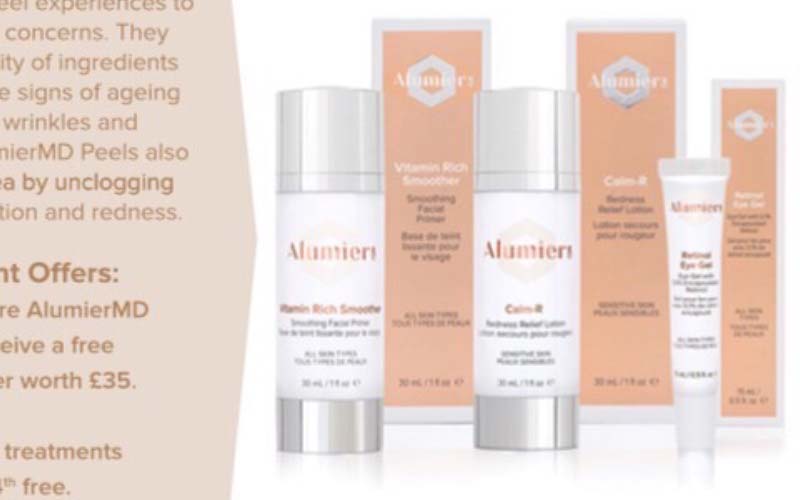Is it better to get your skincare products from the high street or direct from a clinic after you’ve enjoyed your latest facial or massage?
It depends on how effective you want your moisturiser, cleanser etc., to be. We say this because you’ll only get medical-grade skincare from a clinic. What do we mean by ‘medical grade’? Another way of saying this would be that the clinic’s skincare is more effective. Why? Because it contains more of the ingredients required to get the desired effects on the skin. Not only that but your clinic is fully qualified and trained to recognise and treat your particular skin type or condition.
Brands you can choose off-the-shelf from Boots, Superdrug or any high street chemist, are ‘cosmetic’ rather than ‘medical.’ In other words, they may contain similar active ingredients to your clinic skincare range, but the high street offering won’t be as concentrated, there wouldn’t be enough of it to make a physical improvement to your skin.

@byrdiebeauty: “Some mainstream brands may tout their retinol serum or night cream as an incredible skin-transforming product, but sometimes there are trace amounts of actives surrounded by synthetic additives, a false claim medical-grade brands don’t stand behind.”
And it may be that you’ve chosen unwisely. After all, you only have what’s written on the packaging to go on – there’s no expert behind the counter to ask for advice. And that’s another problem with high street brands – it’s a ‘one size fits all’ approach.
How does a product get classed ‘medical grade’?
A product can be labelled as ‘medical grade’ by undergoing a barrage of clinical trials and scientific research. The way the products have been put together means they can access the deeper layers of your skin – where you’ll find the likes of skin-smoothing collagen and elastin. On the other hand, High Street products don’t tend to contain enough ingredients to reach a deeper level. Instead, they’ll often sit on the top of the skin (the epidermis) – without much effect.
In essence, then, medical-grade skin care products contain specific components of ingredients which have already been proven beneficial for particular skin problems. Because of this, only qualified professionals can advise on, and sell, the products.
Is it worth the additional cost for medical-grade products?
The cost of having more concentrated ingredients in skin care products used by clinics is indeed just that – the cost. You will find they will be more expensive to buy than creams and serums etc., that you can simply pick off the shelf in your local chemist.
But then you get what you pay for. At this point, it comes down to prioritising. Being the largest organ of your body, it’s essential you look after your skin. After all, it’s continually exposed to the elements (as well as the natural effects of ageing). So, it is important to consider the skin, especially as you age. And the younger you start to care for it, the better in terms of how it will look with each passing decade.



